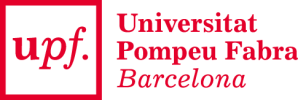TRANSMEDIA LITERACY. Exploiting transmedia skills and informal learning strategies to improve formal education
TRANSLITERACY – 645238 / Horizon 2020 – Research and Innovation actions
Principal investigator: Carlos A. Scolari (Universitat Pompeu Fabra, Barcelona)
The aim of the Transmedia Literacy project is to understand how the young boys and girls are learning skills outside the school. The construction of those cultural competencies and social skills will be at the centre of the research. Once the informal learning strategies and practices applied by young people outside the formal institutions are identified, the team will ‘translate’ them into a series of activities and proposals to be implemented inside school settings. The Transmedia Literacy Project will also produce a Teacher’s Kit that will be designed to facilitate the integration of transliteracies in the classroom.
In short, the Transmedia Literacy project will:
- Contribute to a better understanding of how teens are consuming, producing, sharing, creating and learning in digital environments
- Create a map of transmedia skills and informal learning strategies used by young boys and girls that identify how these may correspond with the formal education system.
- Go beyond the identification of skills/strategies and propose a Teacher’s Kit that any teacher could download, adapt and apply in the classroom.
- Conduct research and develop these toolkits in 9 countries across three continents.
- Integrate an international and interdisciplinary team of researchers.
The Transmedia Literacy project involves an interdisciplinary group of 25 researchers with sound experience in fields such as: media literacy, transmedia storytelling, user-generated content and participatory culture, traditional and virtual ethnography, and pedagogy and innovation in education. The research will focus on specific skills (i.e. transmedia content production and sharing, problem solving in videogames, etc.) in 8 countries across three continents (Australia, Colombia, Finland, Italy, Portugal, Spain, United Kingdom, and Uruguay).
The research will focus on teens (12-18 years old), an age characterized by a short but intensive use of media and digital technologies. Most of the teenagers who will participate in the study have been using digital technologies for a few years, and see new media as part of their ‘natural environment’. Many teens would be considered advanced users. The aim of this study is to map transmedia practices and informal learning strategies teens use through an ethnographic approach which integrates survey responses, interviews, focus groups, and participant observation.
According to Castells (2007) ‘there is a cultural and technological gap between today’s youth and a school system that has not evolved along with the society and the digital environment’. In this context the Transmedia Literacy Project explores one of the topics proposed by the ICT 31 – 2014: Human-centric Digital Age call: the relationships between (new) media, technology and education in a hyper-connected age where the limits between offline and online have been blurred. The project will not only explore how young people engage in transmedia practices in informal learning environments; it will also propose a series of initiatives to introduce those experiences into the formal learning system.

 This project has received funding from the European Union’s Horizon 2020 research and innovation programme under grant agreement No 645238
This project has received funding from the European Union’s Horizon 2020 research and innovation programme under grant agreement No 645238
.